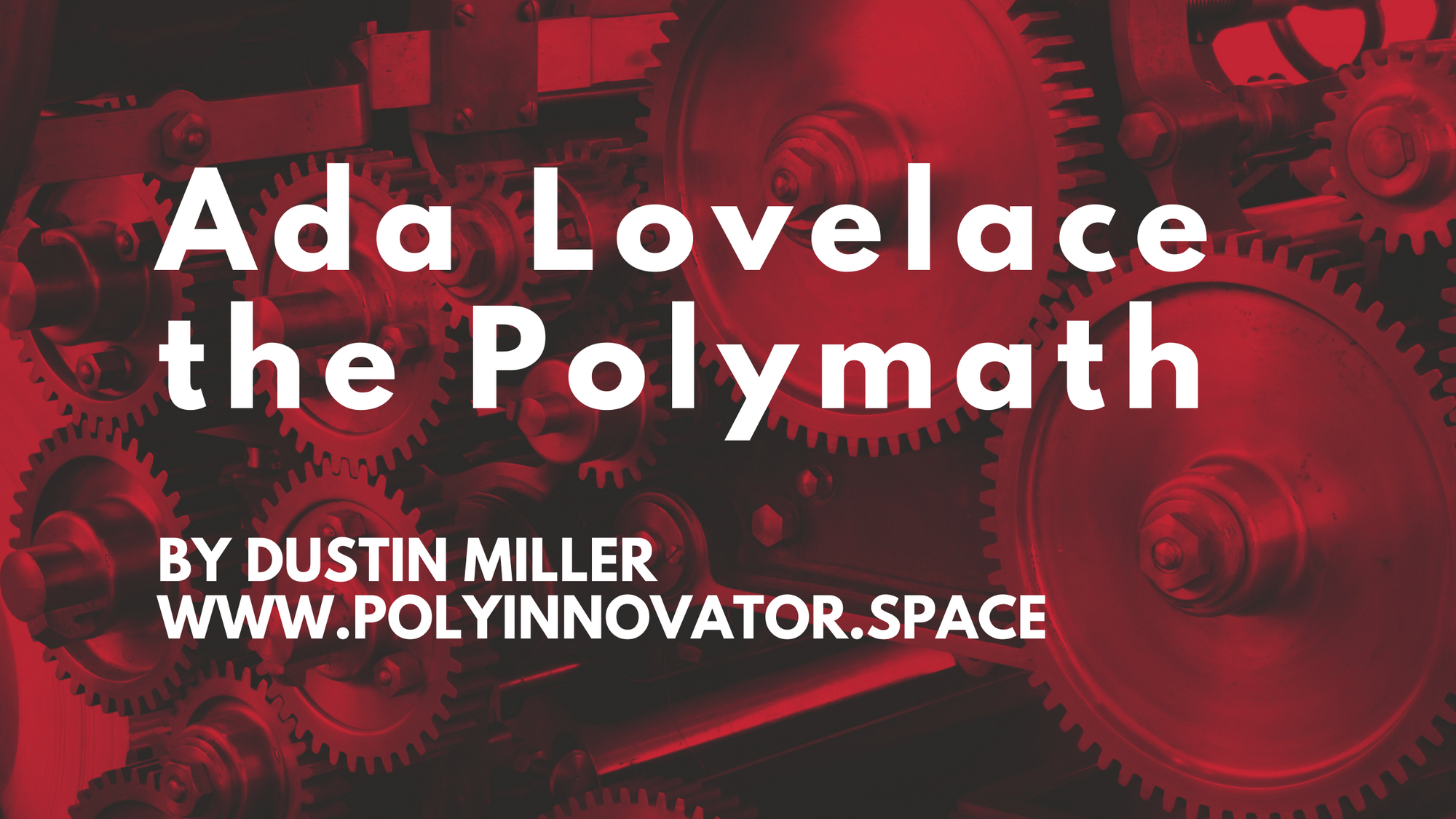Augusta Ada King, the Countess of Lovelace was an English mathematician and writer, and she is known for her work on Charles Babbage's Analytical Engine. Whereas Charles saw it as a calculating machine, and viewed through a limited scope. Ada was able to see it for the potential it had, and was able to conceptualize the computation machine.
She was a woman far ahead of her time, as well as a great polymath too! I find that not enough women polymaths are exemplified, let alone even talked about. I hope to rectify that through posts like these, and showing her genius multidisciplinary life. Not only would it fit to call her a polymath, but she is a great inspiration for women in tech. In her time it was unheard of for a woman to practice science at the level she not only did, but also would strive towards.
Being separated from her father, who would incidentally pass away when she was eight, her mother enrolled her in a vast collection of studies. From music, French, mathematics, and more.
Her Reason for Being
She would exclaim her love for science as poetical. Her wonderful imagination left her soaring amongst the clouds. Her mother would scold her for pursuing her own curiosity driven studies, one example being her own "flyology", for that of the endeavor to fly. Much like the much more well known polymath, Leonardo Da Vinci, it seems that the fascination with flight is global.
Whereas her mother aimed for Ada to learn more mathemathics and science, which is mostly likely due to her father's flighty poetic nature. Ada Lovelace actually combined her creative and analytical mindsets.
As I mentioned above she worked with Charles on his Analytical Engine, this was after a bit of correspondence of admiration of his work.
How Her Brain Worked
In her correspondence with Charles, and other mathematicians she met through him. She was able to learn more and more about the field, of which favored her insaitable curiosity. Eventually an Italian engineer Luigi Federico Menabrea wrote a paper about Charles' machine.
Problem was it was in French, of which Ada made a connection in her mind that since she knew French, she would be able to translate it. After months of doing so the end result of her notes were three times longer than the original piece.
It proved that she understand Babbage's work even better than he did. In her notes they even came with an example of one the world's first computer programs. Even long before the modern computer was ever invented, she knew how to understand the inner workings.
"The analytical engine can do whatever we know how to order it to perform. It can follow analysis; but it has no power of anticipating any analytical relations or truths."
-Ada Lovelace
What did She Do?
She is known as the scientific woman, and debatably "the world's first programmer". This being said there was a lot of hurdles for a woman of her intellect to face in that time, and even though her work was praised by many peers. There were still many others, particularly men, who would doubt her capabilities purely because of her gender.
She was one of, if not the first, to think how could machines like these impact society. What could they do to improve life, and how would they accomplish those things?
Her papers were published at the time, but the fact that she was a woman lead her mark on history to be tempoarily lost to time. That is until they were republished around the time of when the first computer was actually built.
Rise of the female Polymaths
Some other names Ada were referred to as were:
"An analyst & metaphysician", as well as her scientific colleague Babbage called her the "Enchantress of Numbers". Both seem to glorify her intelligence, ability to think in a deep analytical way, and just go to show her polymathy.
It is my hope that I can shine the light on amazing people like Ada, and exemplify those traits of polymathy. If she were alive today, then she would make for a perfect guest on the PolyCast.
Keep an eye out for more posts about polymaths like this!
![Official Website for Dustin Miller PolyInnovator [LLC]](https://polyinnovator.space/content/images/2025/03/polyinnovator-logo-2024.png)











